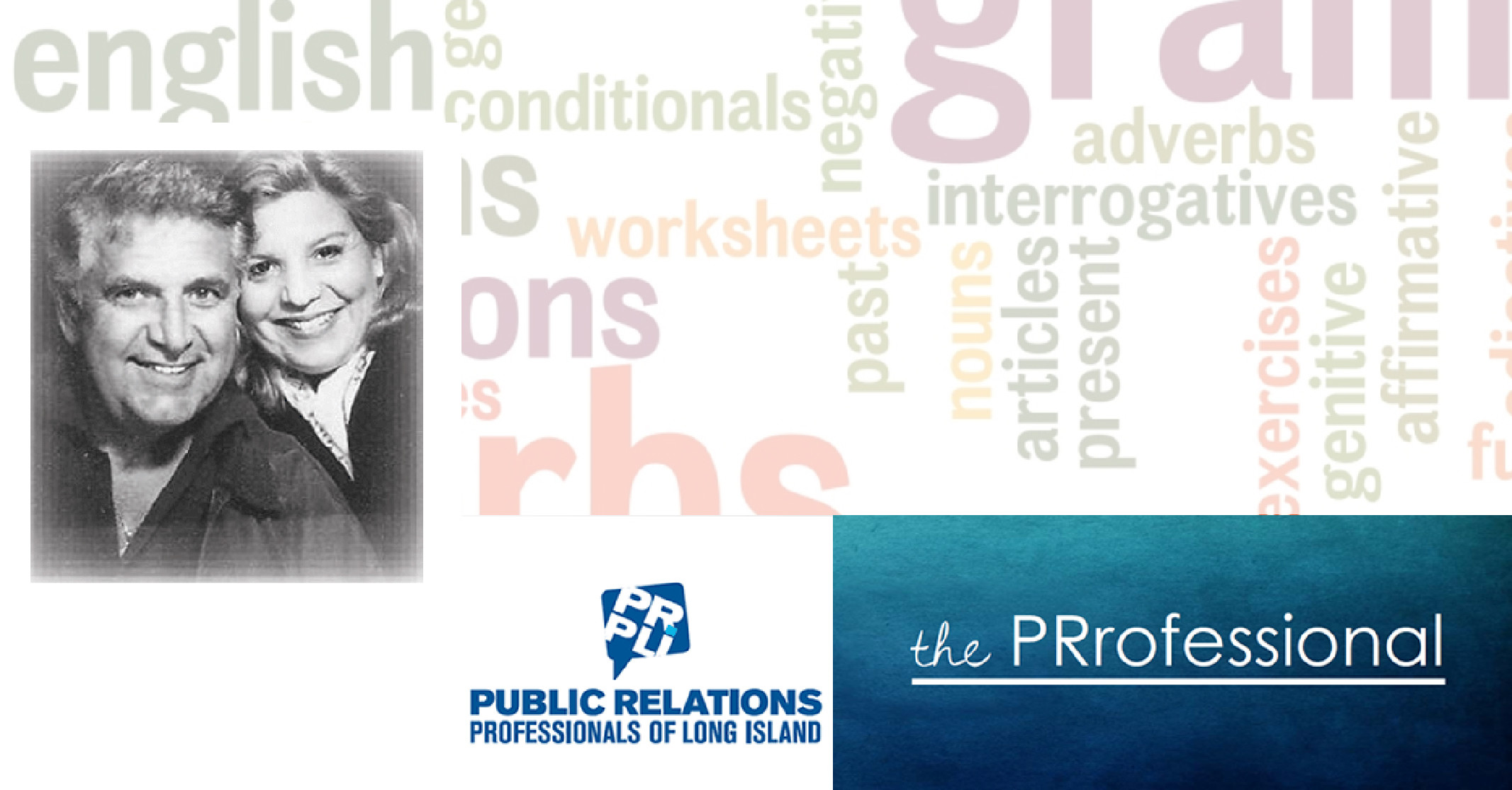I am a product of the Warriner’s English Grammar and Composition books, which helped me with my major in college – English. George isn’t a fan of English majors or, heaven forbid, those with PhDs in English. Yet in our home, as you can imagine, we talk a lot about words.
Sometimes we even argue over them. Two in particular: less and fewer.
In spite of my nose having been in the Warriner’s books for many years, I have a tendency to say less when I should say fewer. He doesn’t hesitate to point it out. (I’m the English major so I should know.) It’s happened often enough.
It goes something like this.
“I would like less potatoes,” I say.
“Fewer,” he says.
“I need to buy more dresses. My style changed. I have less than I did last year.”
“Fewer.”
“PRPLI asked us to write a column with less words.”
“Fewer.”
The simple rule or the traditional advice is that fewer is for things you count, and less is for things you don’t count. Another way to think about the difference that also takes care of some of the exceptions to the simple rule is to use less for singular nouns and fewer for plural nouns. The 1918 edition of The Elements of Style agrees: in its “Misused Expressions” section, it advises to use less for multitude nouns and fewer for countable nouns. In the case above, it should be fewer potatoes, fewer dresses, and fewer words. Yes, it sounds better, doesn’t it?
That brings me to another point about writing. You have to have a good ear, especially as a public relations practitioner. We all make mistakes. But we are counted upon to speak correctly. The English language is not an easy one to master, and anyone whose native language is not English will tell you that learning all of the exceptions to the rules can really put a kink in the process.
For native speakers, it’s a good idea to cultivate a well-trained ear. George has that ear, and I am convinced that he has a GPS on the words less and fewer.
I am also convinced that I have programmed myself to say less instead of fewer because I can really get his attention, especially when his head is hidden behind The New York Times.
But I’m smart enough not to try this stunt at work.
Debra Scala Giokas is the director of marketing at Certilman Balin Adler & Hyman, LLP. She has been working at the law firm for more than 18 years. She tweets about communication related topics, more or less, @debrascalag.
Oh, They’re Just Words, Right?
Well, now that our dirty laundry is out in the open, I admit I do have a thing for less vs. fewer. Sometimes I get worked up over who and whom, but not as much as less and fewer.
Don’t misunderstand me; I’m not a word snob. I cannot diagram a sentence to save my life, and a grammarian I’m not. But there are certain words and phrases that get me going. Here’s a sampling. I’m sure you have your own.
- It’s its. OK, this should be easy, right? Not so fast. I see these two words misused far too often in credible publications and on otherwise “A” papers from my students. I always circle the misused word and bring an explanation out into the margin. But does it make a difference on their next paper? I’ll let you answer that one.
- Apostrophe s. OK, so how many times have you passed a sign that slapped an apostrophe on a word solely because it ended in an s? Show of hands. I thought so.
- Stationery stationary. I can’t sit still for this one because I’ve even seen it misused on a stationary store. Well, I suppose it’s technically correct. It ain’t goin’ anywhere, is it?
- Affect effect. This has a strange effect on me, but it shouldn’t affect the way I write.
Misuse of certain basic words is a sure sign of our times. In this era of emojis, tweets, instagrams, or what have you, using a word correctly isn’t all that big a deal anymore. That’s a real shame, because there is nothing more harmful to a language than misusing it over and over again until we all allow it to degrade. What’s more unforgiveable though, is the actual indifference to its misuse.
Back in the day when I was a journalism major at Long Island University, a journalism professor of mine, a real pencil press editor from The New York Times, once mimicked slapping me over the head with a rolled up piece of my copy because I used the word “expired” in an obituary.
“He died, Giokas! Library cards expire, not people! He died! He died! It’s a good Anglo-Saxon word. Use it. Get it?”
I got it all right.
George Giokas is chairman of the board of HealthDay, president/CEO of StaffWriters Plus, Inc., an adjunct professor at Stony Brook University’s journalism department, and author of the young adult novel Nickel Ice. His food blog is at nickelice.com.






